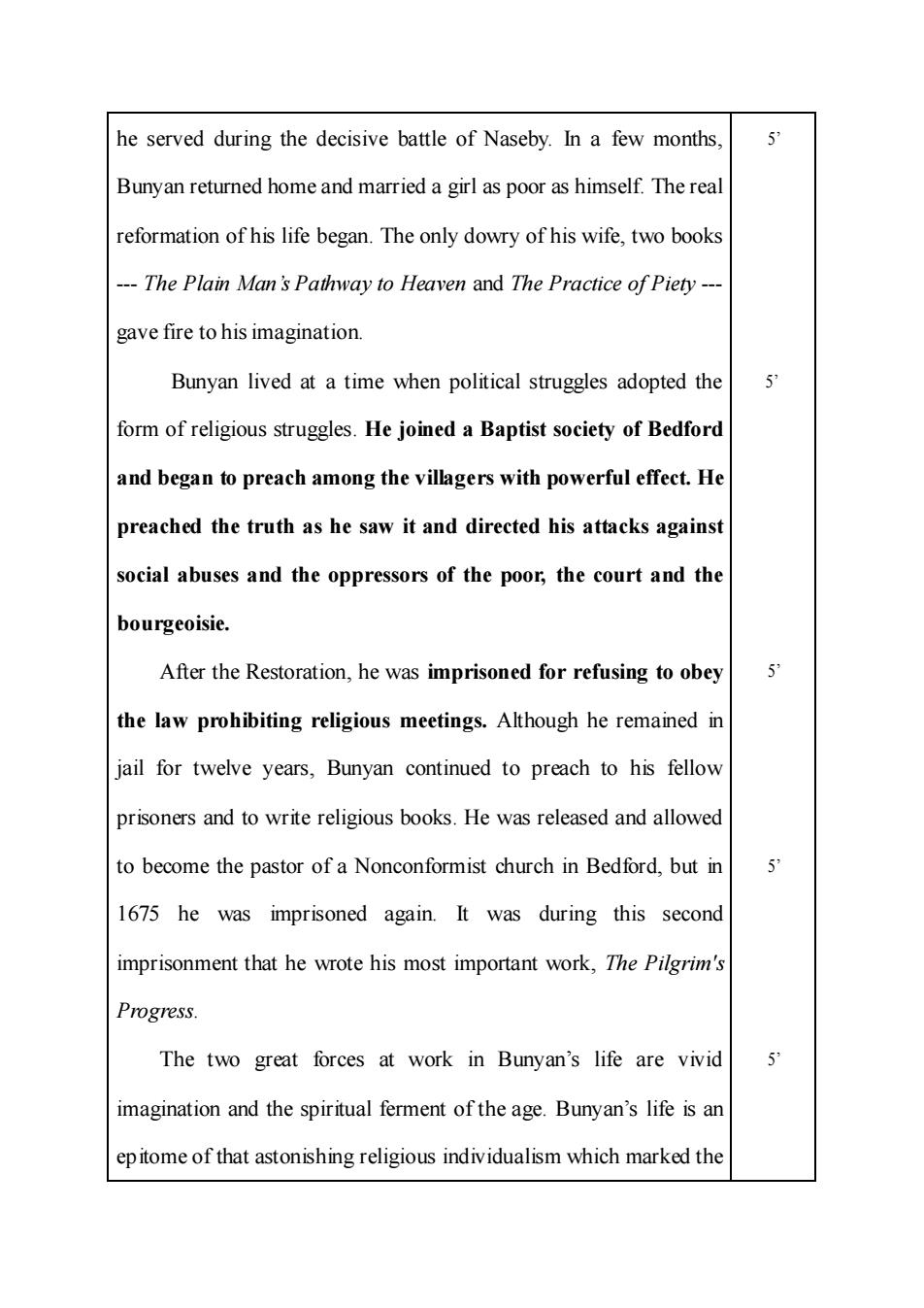正在加载图片...

he served during the decisive battle of Naseby.In a few months Bunyan returned home and married a girl as poor as himself.The real reformation of his life began.The only dowry of his wife,two books -The Plain Man's Pathway to Heaven and The Practice of Piety- gave fire to his imagination. Bunyan lived at a time when political struggles adopted the 51 form of religious struggles.He joined a Baptist society of Bedford and began to preach among the villagers with powerful effect.He preached the truth as he saw it and directed his attacks against social abuses and the oppressors of the poor,the court and the bourgeoisie. After the Restoration,he was imprisoned for refusing to obey the law prohibiting religious meetings.Although he remained in jail for twelve years,Bunyan continued to preach to his fellow prisoners and to write religious books.He was released and allowed to become the pastor of a Nonconformist church in Bedford,but in 5 1675 he was imprisoned again.It was during this second imprisonment that he wrote his most important work,The Pilgrim's Progress. The two great forces at work in Bunyan's life are vivid imagination and the spiritual ferment of the age.Bunyan's life is an epitome of that astonishing religious individualism which marked thehe served during the decisive battle of Naseby. In a few months, Bunyan returned home and married a girl as poor as himself. The real reformation of his life began. The only dowry of his wife, two books - The Plain Man’s Pathway to Heaven and The Practice of Piety - gave fire to his imagination. Bunyan lived at a time when political struggles adopted the form of religious struggles. He joined a Baptist society of Bedford and began to preach among the villagers with powerful effect. He preached the truth as he saw it and directed his attacks against social abuses and the oppressors of the poor, the court and the bourgeoisie. After the Restoration, he was imprisoned for refusing to obey the law prohibiting religious meetings. Although he remained in jail for twelve years, Bunyan continued to preach to his fellow prisoners and to write religious books. He was released and allowed to become the pastor of a Nonconformist church in Bedford, but in 1675 he was imprisoned again. It was during this second imprisonment that he wrote his most important work, The Pilgrim's Progress. The two great forces at work in Bunyan’s life are vivid imagination and the spiritual ferment of the age. Bunyan’s life is an epitome of that astonishing religious individualism which marked the 5’ 5’ 5’ 5’ 5’